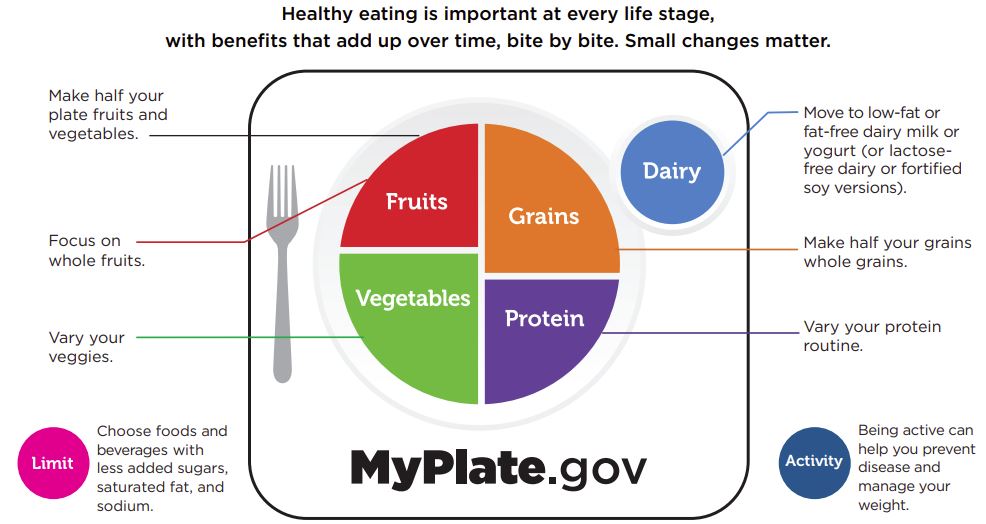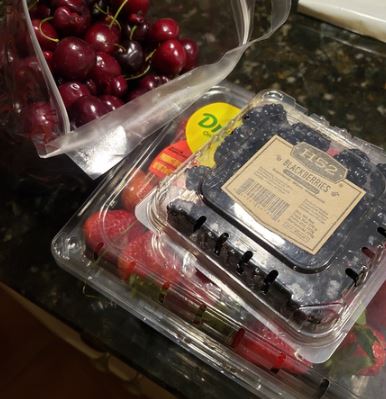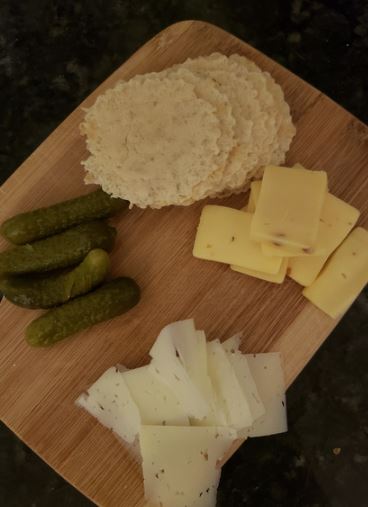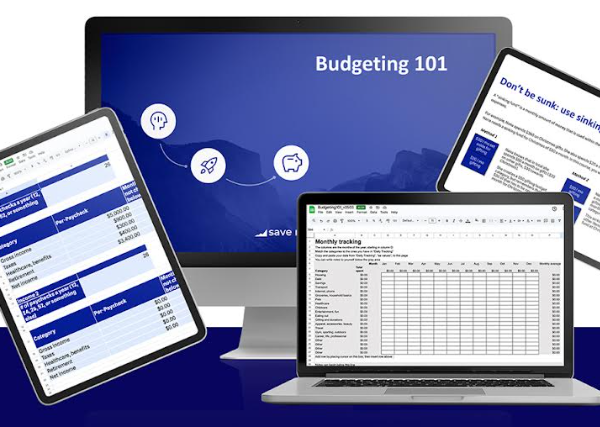I meal prep for my family at the cost of ~$500 a month in groceries. On top of that, my family (2 adults, 1 toddler, 1 baby) has a ~$500-750 a month budget for eating out or doing family meals with the in laws on the weekends (this is partially a splurge, and partially what we consider gifting). We shop primarily at Aldi in Southern California, with some nice things every now and then from Whole Foods. Being in California gives us access to very low cost fruits and vegetables, I’ll also give tips on how to purchase food at lowest cost possible throughout this blog post.

I don’t follow recipes, I cook in building blocks
The MyPlate guidance from the U.S. Department of Agriculture offers a pretty great visual to how I cook food for my family. I have found that people feel really overwhelmed when trying to cook to specific recipes and changing up those recipes. To that I say – throw planning out the window! If you cook to building blocks, you can still have variety in your food, while still enjoying and getting the nutrition you need

Grains
I typically buy a large bag of rice and large boxes of pasta.
Meal prep: I usually prep 2 cups of rice in my rice cooker. It takes just a few minutes.
Day of: Since pasta is very easy to make and passive (10 minutes to boil water, 10 minutes to make pasta), we heat it up day of for better texture. For my toddler, I save time by buying pre-made ravioli / tortellini.
Fruits
We typically buy a selection of apples, oranges, grapes, and berries, and eat them fresh throughout the days. I don’t meal prep fruit. However, if you are really looking to save money, buy frozen fruit and drink them as smoothies instead. We did this for many, many years when fruit felt overpriced in NYC.
Fresh fruit is also our main snack. While it is tempting to buy a ton of desserts and snacks, I try to reuse existing food as snacks, which helps keep us within a reasonable diet.

A typical smoothie recipe:
50% fruits and veggies
30% liquid (a mixture of water, a splash of juice or flavored water for flavoring)
20% dairy (usually non fat Greek yogurt or low fat yogurt)
Vegetables
I meal prep vegetables in two ways – either, I steam and pan fry them, or, I put them into soups.
Meal prep:
1) I buy the majority of my vegetables frozen (green beans, broccoli, spinach, are all great). While still frozen, I put them into a pan and cover, this steams the vegetables and cooks them (I also often add a chicken bouillon cube here to flavor them). I may also add additional fresh veggies at this point (such as mushrooms, bean sprouts). Then I add a dash of oil and seasoning, which crisps the veggies. This takes 5 – 10 minutes max

2) Got veggie scraps? This is when I typically make a vegetable soup. I start with a soup base that I’m already familiar with (either chicken or tomato), and then add everything that I have left to cook!

Day of:
I also often buy pre-made salads which include topping and dressings. These usually allow for 2 – 3 servings
Dairy
Both my husband and I frequently eat low fat yogurt and nuts for breakfast, while we give our kid full fat milk throughout the day as he requests it. We also often snack on cheeses at night.
On nights when I really don’t want to eat prepped food, I also eat adult lunchables, which consists of sliced cheese, sliced deli meats, cheese melted on top of bread, and a bowl of fruit.

Protein
Proteins are probably where I pre-plan the flavors, and then match veggies and grains to them throughout the week. The majority of my chicken, beef, and fish are bought frozen, unless there is a sale. The majority of animal proteins are shipped frozen around this country for health reasons – and defrosted in the back of the grocery store before it ends up on the fresh shelf. For that reason, I have 0 qualms eating frozen foods.
My family does not eat pork (which I understand can be quite low cost) and shellfish, due to religious reasons.
These are the most common protein preparations that I meal prep:
- Oven roasted salmon (everyone can do this one!)
- Oven roasted chicken thighs
- Pan fried sausages (I cut them up into bite sized pieces)
- Stir fried chicken thigh or breast pieces (I buy them frozen)
- Sautéed ground beef flavored with salt, pepper
- Fish prepped inside a Chinese spicy soup
- Pre-cooked egg omelets (I usually cook 3 – 4 eggs a week this way, then they’re cut into strips)
- Stir fried tofu cubes in soy sauce flavoring

Putting it all together
By having these building blocks meal prepped, then you have endless ways to put your recipes together the day of! (Plan for about 15 minutes to put your dinner together / heat it up)
Here’s is where you add flavor and diversity – so I assume that your building pieces already are seasoned, what you’re doing here is adding the final sauce or garnish to turn it to different cuisines.
Examples are listed below. I’ve underlined things that get done more the day of. Usually in cooking in this way I am able to keep things to about ~$2-3 per adult serving.
American
Ground beef topped with pasta sauce + sautéed spinach + pasta
Roasted salmon + side of veggies + rice
Adult lunchables (melted cheese on top of bread, cheese slices, meat slices, pickles, a bowl of fruit)
Latin American
Ground beef topped with cheese, melted over tortilla chips, salsa on the side
Add pre cooked chicken into a tortilla soup (fire roasted tomatoes, onions, tortilla) + salad on the side
Chinese
Toss meal prepped meats (chicken beef) + vegetables (mushrooms, bean sprouts, peppers) into a grain base (such a rice, noodles, rice cakes), add a Chinese sauce (I often add a spicy broad bean paste)
Rice bowl topped with + meal prepped tofu or meat + sautéed vegetable, add seaweed seasoning on top
And that’s it! If you want to get a little more creative you could visit my friend Good Cheap Eats to get some inspiration for what to make.
Other tips and tricks
Stop following food bloggers that make you feel like your meals need to be gourmet
- Our breakfasts are very simple. Yogurt / smoothies for the adults. Cereal, waffles / Chinese buns, milk, fruit for the kid. This gets you down to about ~$1-2 per person, per meal
- Our weekday meals are simple. We have our eating out budget for the weekend
- If there’s an ingredient you know you’ll never use again… skip it! I don’t bother with all the spices in a recipe. The only time I truly follow a recipe is when I’m hosting a holiday meal
- get over your issue of not liking leftovers or frozen foods. I often get people commenting on how eating leftover or frozen food is gross – go play your first world little violin, I came from a family that starved, so I don’t care for this mentality. If you want to eat on a budget, you will eventually accept that frozen foods don’t taste all that different, while offering you the same nutrients, at nearly half the cost, of fresh food
- I don’t go out of my way to buy organic food. It’s not making a difference in my health, and having worked in the food industry I understand much of it is marketing. If you have medical needs, adjust as necessary
How I stay super efficient
- I meal prep for about ~2 hours, twice a week. Typically on Sunday and Wednesday evenings after kiddo goes to bed
- We don’t tend to have leftovers to freeze, unless I made a very large soup. What I use my freezer for now is frozen ingredients (frozen meats and fish, veggies, fruits) or frozen premade food (dumplings, buns, ravioli, waffles)
- Use some of your meal prep time to chop foods! I also often buy pre-peeled garlic, I pre-chop onions of all kinds, and spices, and then freeze them in the freezer as well
- Wash your dishes as you cook. There’s a lot more downtime than you realize when cooking – waiting for water to boil, waiting for things to heat and simmer. That’s when I proactively wipe down my working station and wash prep bowls
This is not nutritional advice
- If you have medical or athletic needs, take what makes sense from this methodology and adjust it to your diet. I’m not a nutritionist, so this page is written for a general audience
Follow my daily ramblings on Instagram @savemycents
Sign up here for a free 6 day No Spend Challenge to learn how to spend according to your values










